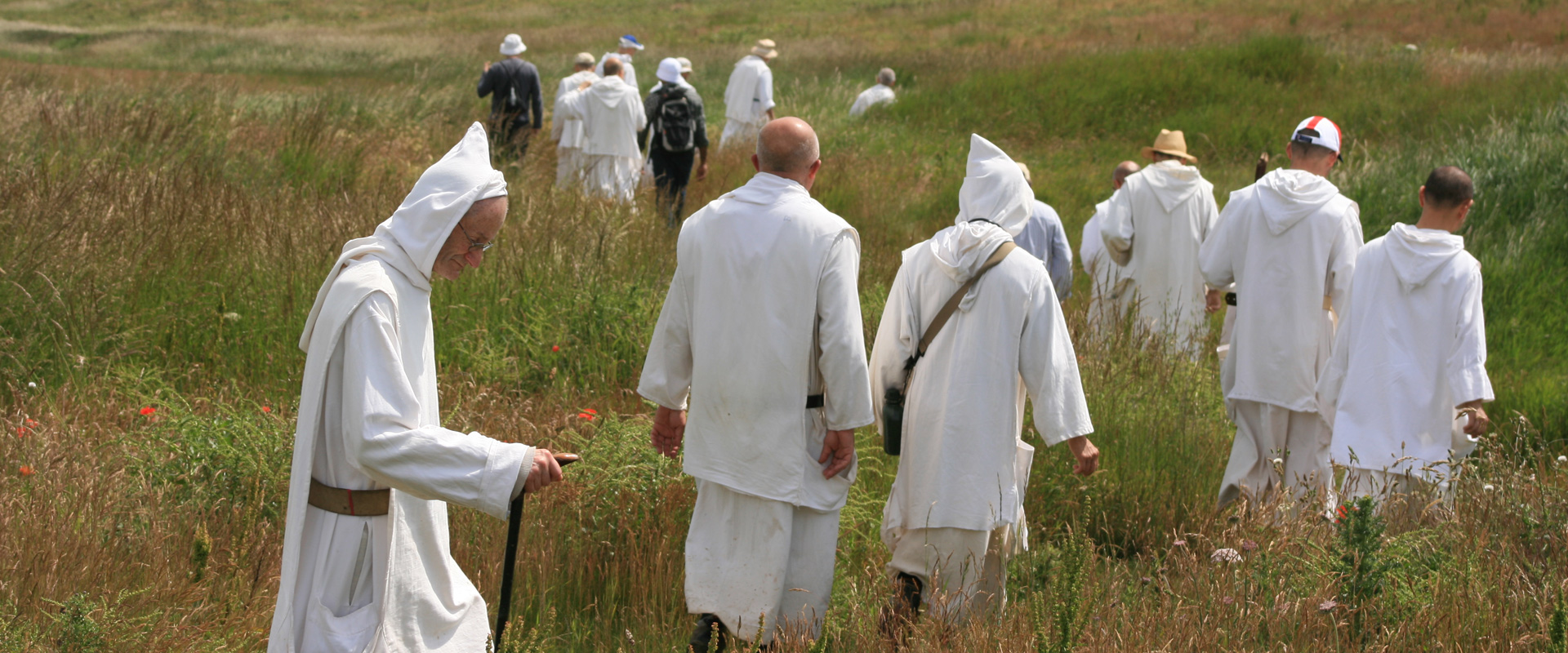The Carthusian Journey
“We had been discussing for some while, as I recall, the false attractions and ephemeral riches of this present life and comparing them with the joys of eternal glory. As a result, we were inflamed with divine love and we promised, determined and vowed to abandon the fleeting shadows of this world at the earliest opportunity, and lay hold of the eternal by taking the monastic habit.” (St Bruno)
There are several stages: the postulancy (3 to 12 months), the novitiate (2 years) and temporary profession (5 years), before a monk makes a final commitment by solemn vows. It takes time to grow to maturity, to arrive at the unshackled liberty to give oneself, to love as we are loved.
This comes about little by little, learning to listen to the Spirit, to let his light and love penetrate our hearts, and reconcile us with God, with ourselves and with our neighbours.
“Dead to sin and consecrated to God by baptism, the monk by religious profession is still more totally dedicated to the Father and set free from the world; he will be able henceforth to strive more directly towards perfect love. The firm and stable pact which binds him to the Lord makes him share in the mystery of the indissoluble union of Christ and the Church; before the world he bears witness to that new life won for us by Christ's Redemption.” (Statutes 10.1)
“By penance we take part in Christ's work of Redemption. He saved the human race, burdened and enslaved by sin, by his prayer to the Father, above all, and by his immolation. In striving to share in this deepest aspect of Redemption and despite our abstention from visible activity, we carry out an apostolate in an outstanding way.” (Statutes 34.4)
“I stand as a beggar before the mercy of God, praying that he will heal all the infirmities of my soul and fulfil all my desires with his bounty.” (St Bruno)
Through the grace of the Holy Spirit a very profound transformation in Christ takes place in solitude. Leaving the world physically is only the first step of a long exodus towards the Father. The journey entails the crossing of one’s desert and the progressive discovery of our misery and fundamental need of the Lord’s mercy in everything. When the monk is established on this solid rock, there is no end to his joy; the joy to be child of God, sharing intimately in Christ’s sonship, and in his tenderness and compassion for the whole of creation.
At the heart of the Carthusian desert is the mercy of God, his unconditional goodness, that goodness and that beauty that made St Bruno sigh: “O Bonitas!”, “O Goodness of God!”
“The Lord is the Spirit, and where the Spirit of the Lord is, there is freedom. And we all, with unveiled faces, beholding the glory of the Lord, are being changed into his likeness from one degree of glory to another.” (2 Cor 3:17-18)
“What other good can compare with God? Whence it comes that the soul that has attained some degree of holiness and has experienced in some small measure the incomparable loveliness, beauty and splendour of this good, is set on fire with love and cries out: "My soul is thirsting for God, the God of my life; when shall I enter and see the face of God ?" (St Bruno)
“Amen. Maranatha. Come, Lord Jesus!” (Rev 22:20)


